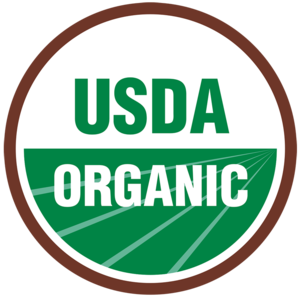Do you ever wonder,
“what does the USDA Organic label ACTUALLY mean?”

“Healthier?”
“More expensive?”
“Safer?”
From your health, to the environment, to the animals, and even the folks working on the farms… we went on a fact-finding mission for the benefits of going Organic, and we’re back to share some gold nuggets with you.
For the next month, we’re going to shed some light on how going Organic can make a difference that might just be worth the extra pennies at the cash register.
To start, the organic label isn’t earned easily. In order to don the green, white, and brown, companies have to apply to the program and abide by rigorous standards set by the US Department of Agriculture. The certification is available to businesses who:

- demonstrate sufficient expertise in organic farming and handling
- comply with the appropriate guidelines and pass annual auditing and routine inspections
At the very least, all products with the USDA Organic logo displayed on their packaging or label are produced without synthetic chemicals, on land that has not been exposed to those chemicals for at least 3 years.
When it comes to broiler chickens (chickens raised for meat), the USDA Organic certification ensures they are raised without antibiotics, have clean, dry bedding in their houses, and are given outdoor access to encourage natural behaviors.
So what does the Organic logo ACTUALLY mean?
It means the folks growing and raising your food and products under this certification are dedicated to detail, and committed to high standards. It actually means a lot.
🌱
To see a full list of guidelines for various industries, visit the USDA website.



